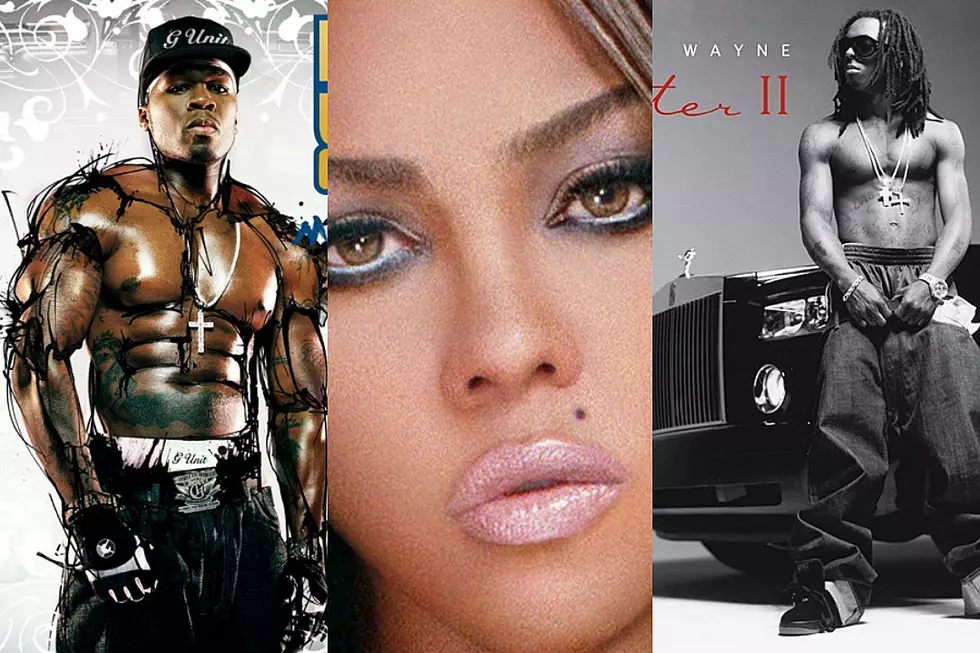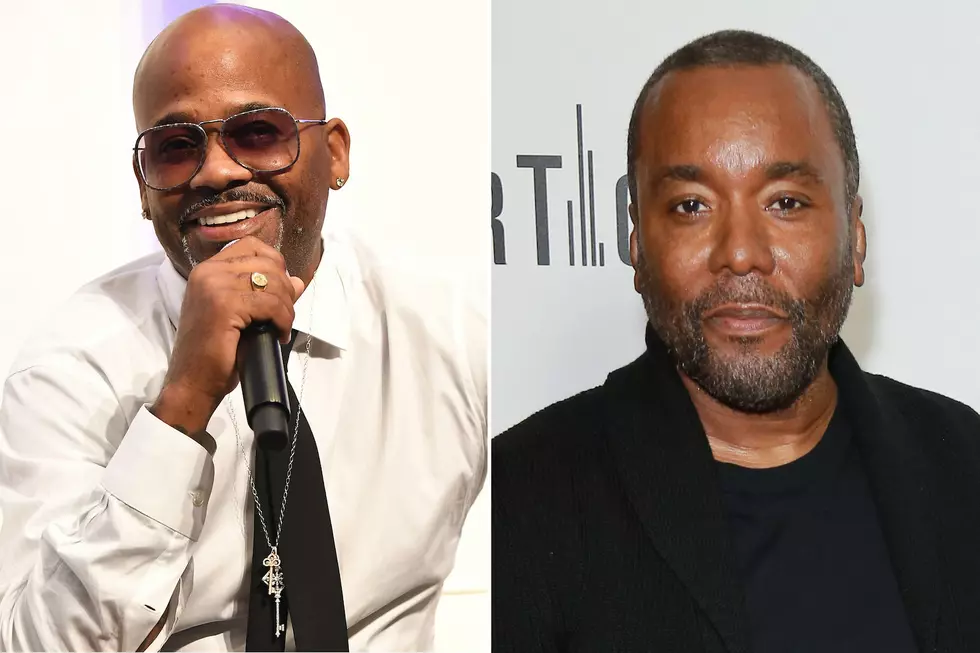
David Banner Reflects On Race In America, His Role In ‘The Butler’
With the release of his new film The Butler just two days away (August 16), expectations are exceptionally high for famed director Lee Daniels' fourth feature film. Butler, which tells the story of Eugene Allen—a real-life butler who worked in the White House for 34 years (or eight Presidential terms)—features an all-star ensemble cast with performances from Forest Whitaker, Oprah Winfrey, Terrence Howard, Robin Williams, John Cusack and Mariah Carey. Among the laundry list of award-winning actors set to appear in The Butler, though, is an unlikely name—Mississippi rapper David Banner.
While Banner—who is most known for crafting radio-friendly singles "Like A Pimp," "Get Like Me" And "Play"—may not exactly fit in with the likes of Oprah and Mariah, the Southern star has been patiently making a case for himself as a legitimate actor since his debut in 2007's Black Snake Moan. Since then, he's gone on to work with the likes of Idris Elba, Al Pacino and Mekhi Phifer, and is currently gearing up to release his own short film, titled Walking With God. In a phone conversation with XXL earlier today, Banner talked about recent films perpetuating stereotypes about Black Americans, searching for laughter in life's darkest moments and being in acting school for the past ten years.
XXL: So first off, tell me about being approached for this movie, and why you wanted to be a part of it.
David Banner: My agent came to me about it. Lately I've been very particular with the things I've been a part of, so when I initially heard about The Butler, I was hesitant because of a lot of the things I've been seeing in the press, as it pertains to black people. A lot of movies just had an overload of subservient roles for black people. It was a lot of "Nigga this," "Nigga that," "Nigga, nigga, nigga." And you know, regardless of whether I can control that or not, I can definitely control what I'm a part of and what my brand is a part of. But I had an opportunity to meet Lee Daniels and his sister when I auditioned for the Martin Luther King movie which never came into fruition. So I met them earlier, and I ended up getting a chance to read the script and I was really impressed with the script, and they were impressed with me.
What about the script grabbed you initially?
What grabbed me was that this individual went from sharecropping to being honored by President Obama. Imagine being able to live that long. We're not even talking about the different attitudes that he had to deal with as a butler in the White House… You know, think about the difference between working for Kennedy and Reagan. And we're not talking about everything in between. The movie is a reflection of what our people have gone through, historically. And I think it's important right now. Even the things that people may not like, it'll raise discussions that need to be raised in our communities right now. I think the thing I'm proudest of with this film is that [it starts those conversations], but it's not in a way that's all fire and brimstone. There's a lot of funny aspects that help brighten up the horrible conditions that our people have gone through in America.
Do you think those funny moments make the film more accessible and easier to swallow?
Yeah, but I don't think it does it for the sake of comedy. I don't care what situation you go through, you find one moment. I remember my friends in Jackson, Mississippi got ran over. They were pushing a cart out in the street, and they all ended up getting hit. One of the dudes lost his leg, and while they were on the ground bleeding he looked over and said, "Damn, the day started out good, didn't it?" [Laughs] If you can find joy in a moment like that… There has to be breaks in the learning process.
Tell me about how The Butler differs from some of the recent films you mentioned that commodify Black culture and play to its stereotypes.
This film tells a story from our perspective, you know? Whenever another race of people tell stories about a different race, they have to digest it and get it from an outsider's perspective. Whether good or bad—because some people do a good job—it's not genuine. It's very hard for a man to really express how a woman feels. It's impossible. You can relate, but to a certain degree, it'll never be done right unless it's done by the person who's going through the pain. It's wonderful for people to open that door, but it's our responsibility to tell that story for our people and reap the benefits of telling those stories. I gave this example recently… I said, it's amazing that America brought slaves here, worked them for free, released them without any benefits and then taxed them. It's similar to people who write these stories about us. We experienced this pain, and then people turn around and capitalize from giving the story right back to us.
Why was Lee Daniels the right person to make this movie?
Well, he was able to pull the right resources and pull the right actors. It's hard to get our folks into theaters to see something that means something. For Lee Daniels to be able to pull Oprah Winfrey and James Fonda, and that's not even talking about Lenny Kravitz and Mariah Carey… He pulled people from so many different cross-sections, and these are all great actors in their own right. He pulled these people together to talk about a great subject.
There's been a recent resurgence of filmmakers making historical movies about the Black experience in America, from Django to 12 Years A Slave to The Butler. Why do you think it's become a popular trend to re-tell the actual history of Black Americans?
I don't know whether it's a trend, because is America going to do anything about it? Are they really trying to accomplish something by telling these stories? I have a problem because America is getting really comfortable with saying the word "Nigga." America is acting like they actually did something about slavery, or justified what was done to African Americans. I don't know if that's such a good thing, because nothing is being done about it. How can I believe that you're being genuine when nothing is being done?
Also, I would feel a lot better if those same people would make stories or allow Black people to be shown in other ways than as slaves and the help and workers. You gave us Django, but can you give us a Black superhero? You gave us The Help, but can you give us a positive Black story without the same Black actor that you see a hundred million times? Can you allow Black children to see themselves as more than the help, or Django, or being raped and shot at in movies? What happens is, if you perpetuate that for long enough, it becomes our children's reality.
Let's talk about your acting career. The first time the world saw you was in Black Snake Moan, which was your first feature film. Tell me about your progression as an actor since then, and avoiding the easy roles that come most commonly to a rapper who's delving into acting.
I've been in acting school for ten years. Instead of me buying some of the things that my friends bought, I went to acting school every week. I flew to L.A…. straight from concerts, wherever, straight to L.A. I've been in acting school for ten years, so when people see the evolution of David Banner as an actor, it hasn't been something that came overnight. Some of my fans have complained that I always get similar roles, but some people only see us as the robbers. Some people only see us as niggas. So they don't put us in their films in any other way.
But you know, with me being a rapper and making some sacrifices on that side, it afforded me the ability to, if I played a thug role, I'm going to take the thug role in a film playing next to Christina Ricci and Samuel L. Jackson. From those roles, it was a progression. In some of the films, I took them for relationships, to be able to get in the door and land other films. I've done films with Adrien Brody, I did two films with Forest Whitaker, Al Pacino, Jane Fonda, Oprah Whinfrey. It's been a short time, but I've been able to have paid acting school with some of the greatest people who have ever touched the screen. It's been a great progression.
More From XXL









